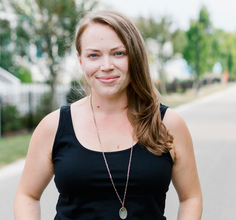So apparently, the COVID-19 pandemic is over. And it is true that, as of mid-September, the number of COVID deaths per week in the US was declining, from over 3,000 per week in early August to 1,300 the week ending September 17.
For some of us, that decline, combined with official assurances that the pandemic is over or ending, are a relief. The long period of isolation is over, and we can finally go back to how things used to be. For some of us, however, the numbers of people still dying make the official assurances frightening rather than comforting. For this latter group, seeing large numbers of people going maskless at the grocery store or at our jobs is alarming, conjuring up fears of a resurgence—especially if you are part of a group particularly vulnerable to COVID.
If you are feeling alone in still worrying about it, let me assure you that you are not: many people still are. We’ve all already had the experience of the pandemic worsening because people didn’t take it seriously enough, and it’s scary to think that might be happening again. Very few of us have the medical expertise to know whether there’s a good reason to think it’ll be different this time—and those who do, don’t necessarily agree!
Obviously, you’re not going to find medical advice on this blog. But there’s also an emotional side to this, the potentially very isolating and frustrating experience of being worried about something that others aren’t taking seriously. So here are a few tips to cope with that situation—pandemic-themed, but applicable any time it’s happening.
1. Look for the facts.
Try to seek out sources of information based not on whether they agree with you, but on whether they are reliable. Do they cite their sources? Are those sources experts in relevant fields? Do they represent a consensus of the experts, or a fringe opinion? Remember, however, that two people may look at the same facts and come to different conclusions about what the best course of action is; you don’t get to decide your own facts, but it is up to you to decide whether the facts are comforting or alarming, whether they signal that it’s time to take more precautions, fewer, or the same.
2. Seek out people who share your concerns.
Very often, the best way to not feel alone is to not be alone. This seems obvious when stated so plainly, but it can be very easy to go from feeling like the only person we know feels a certain way, to feeling like the only person in the world who feels that way. But oftentimes, even among the people we already know, how we feel isn’t unique; it’s just that everyone else is feeling as awkward as you do about expressing an opinion contrary to the crowd. Once you do, you may very well find others agreeing. Even if that doesn’t happen in your existing communities, it is very often the case that however you feel, about almost any topic, you can find a community somewhere online of people who feel similarly.
3. Do what you can to feel safer.
Maybe your job no longer allows work from home—or maybe it never did at all—but you can persuade your workplace to keep a masks-required policy in place a little longer. Maybe you can’t make everyone else in your local supermarket wear masks, but you can keep wearing your own. Maybe your friends insist on having a get-together, but you can decline to attend or ask to have it outdoors. Set the boundaries you need to in order to feel comfortable in your life.
4. Practice radical acceptance.
Radical acceptance is a technique from dialectical behavioral therapy (DBT) that helps prevent distress from becoming suffering. It does not mean accepting things in the sense of passively letting bad things occur or denying that they are bad; rather, it’s about accepting that things are as they are, and dwelling on questions like “why me?” doesn’t actually help you make them any better. Accept that you cannot control what other people choose to do or believe, only what you do and believe. Accept that there is a certain level of worry that comes with living through frightening times, and a certain level of frustration that comes with making a choice that seems right to you and unnecessary to others. Don’t fight those feelings or try to disconnect from them; accept them, understand what they’re trying to tell you, and then choose whether or not to act on them. The above techniques aren’t just for the pandemic; they can help with any situation where you feel alone in your feelings. Most of all, remember that even if there is no one who feels exactly as you do, somewhere there is someone who will at least respect your feelings and your choices—and possibly closer than you think!
























